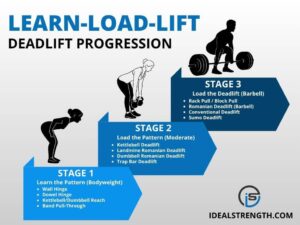As personal trainers, our role extends beyond guiding physical transformations; we’re also here to support clients in making meaningful behavior changes. Yet, it’s common to slip into the ‘advice monster’ mode, especially when starting out. While we’re knowledgeable in exercise science, nutrition, and physiology, psychology might not be our strong suit. This can lead us to offer advice that isn’t always timely or relevant.
Table of Contents
ToggleUnderstanding Client Challenges
Clients face numerous hurdles—whether it’s sticking to a diet, maintaining exercise routines, or managing various health priorities. To genuinely assist them, we need to understand their struggles, and that’s where techniques like motivational interviewing (MI) become invaluable. MI encourages clients to explore their hesitations and engage in a conversation about the changes they want to make and the reasons behind their difficulties.
In his book, The Advice Trap, Michael Bungay Stanier emphasizes the importance of staying curious rather than falling into the habit of giving advice too readily. He writes, “Generous silence provides space for the other person to be with their own self, for you to be with them, for presence to show up.” This mindset can be transformative in facilitating client engagement and fostering self-discovery.
The Art of Listening
For specialists in exercise science, or any field for that matter, it can be challenging to hold back from offering immediate solutions when our clients are struggling and you feel you have the right answer. However, jumping in too quickly to offer your expertise can create resistance. Clients may feel they already know what’s being suggested and, without soliciting our input, they could resist any guidance offered. Instead, using open-ended questions helps clients navigate their internal conflicts, empowering them to develop their own solutions.
Stanier also provides practical advice on how to frame guidance: “Here’s my best guess… I may be wrong… This is just one idea…” This approach makes advice seem less prescriptive and more of a collaborative exploration, which can be key in maintaining client receptiveness.
When to Offer Advice
By effectively using motivational interviewing, clients are more likely to ask for advice. That’s when our expertise is most valuable—when clients need assistance applying knowledge to their personal situations. Even then, it’s crucial to ask: “May I offer you some advice?” or “Can I share an experience?” This approach reframes advice-giving from imposing knowledge to sharing valuable insights while respecting the client’s autonomy.
Adding Value Beyond Information
In today’s information-rich world, where answers are just a click away, our real value lies not in providing information but in helping clients apply it effectively. Clients come to us not just for facts, but for strategies that address their unique challenges and assistance in implementation. With so much data available, we must help clients focus on what truly matters to them, at that time.
Simplifying Complex Information
As coaches, we know that providing a ton of information all at once can sometimes leave clients feeling lost. Just like it’s tough to juggle multiple things when learning a new exercise, focusing on too many instructions can be overwhelming. Instead of giving five different cues at once, we can focus on one or two that make the biggest impact. This approach helps clients really grasp what’s important without feeling like they’re drowning in details.
By breaking information down into bite-sized pieces, we create a more welcoming learning environment. This method of gradual learning not only makes things clearer but also aligns with a conversational style of coaching. We can engage clients more effectively by asking questions like, “How does this feel for you?” or “What do you think about trying this?” This way, clients are more involved and invested in their progress.
Offering advice when it’s truly needed—not as a constant stream—helps clients feel supported and respected. When they’re not bombarded with information, they’re more likely to absorb and apply what they learn, leading to better results and a stronger client-trainer relationship. Listening more and talking less creates a space where clients feel heard and empowered, making their journey more enjoyable and successful.
Listening Over Lecturing
Ultimately, the heart of effective coaching lies in truly listening to our clients rather than overwhelming them with unsolicited advice. While it’s tempting to share all our knowledge at once, clients benefit more when we prioritize understanding their unique perspectives and needs. By listening more and speaking less, we foster a deeper connection that allows us to offer support that is truly meaningful.
This mindful approach ensures that when we do offer advice, it is well-received and relevant to the client’s journey. By creating a space where clients feel heard and valued, we empower them to take an active role in their own progress. This not only enhances their ability to make lasting behavior changes but also strengthens the trust and rapport between client and trainer.
In the end, the most successful coaching relationships are built on a foundation of empathy and respect, where advice is given as a collaborative exploration rather than a lecture. By keeping our ears open and our words thoughtful, we guide our clients more effectively toward their goals, making the journey as enriching as the destination itself.









